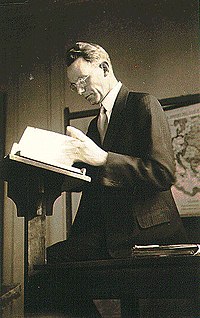In Philosophy of Religion and Analytic Theology much ink is spilt on arguing for the coherence of theism. But of course there are different rival models of God. Some are within orthodoxy and some are not. But the important point is they are models. Theories built from Biblical data (and/or theological, philosophical and scientific reflection) to provide a coherent and consistent story of God’s nature and character. Oliver Crisp defines a model roughly as, “a simplified conceptual framework or description by means of which complex data sets, systems, and processes may be organized and understood.”[1] Why construct models? An obvious reason is to demonstrate Christian doctrines are not logically impossible. But how does Biblical interpretation interplay with constructing models of God? I want to focus on three hermeneutical approaches. Perhaps more approaches can be discussed but would go beyond the scope of my intentions here. Now it should be said that all three approaches are nuanced enough to deal with literal and figurative language in Scripture. So I will simply speak broadly. The first approach takes language about God analogically in Scripture. Scripture is viewed as God’s self-disclosure and condescension to us with anthropomorphic, anthropopathic and zoomorphic language. Hence, it must be stressed that such language should not be taken as wooden literalism. Classical theism consistently argues from this first approach. The second approach interprets language about God univocally in Scripture. Scripture is viewed as God’s self-disclosure to us with literal (i.e. non-anthropomorphic or non-anthropopathic) language. Therefore, it is stressed that such language must be taken as literal. Thus when Scripture says God changes His mind this approach takes such language to be really the case. Open theism consistently advocates this approach. The third approach interprets language about God univocally or analogically in Scripture. Scripture is viewed as God’s self-disclosure to us with literal and figurative language. Consequently, it is stressed that such language must be determined in each relevant case. Thus when Scripture states God is angry or God changes His mind such statements cannot simply be interpreted as literal (i.e. non-anthropomorphic or non-anthropopathic) without overriding reasons. Overriding reasons may be reasons or evidences that render such an interpretation implausible or unreasonable. For example, Scriptures explicit teaching that God knows all things, including past, present and future events. Or that Saul of Tarsus was storing up God’s wrath as an enemy of God; but, by God’s sovereign mercy and grace Saul became Paul a friend and minister of God. Indeed, this third approach does not have a straightforward, across the board, interpretation in all cases. The presumption of the analogia fidei principle is to be foundational. The literary genre and authorial intent is to be considered. Church history, creeds and confessions, if relevant, may be consulted. Moreover, undesirable intractable theo-philosophical problems that arise from any given interpretation may also be weighed.
[1] Oliver Crisp. Analyzing Doctrine: Toward a Systematic Theology (Baylor UP, 2019), p86.












